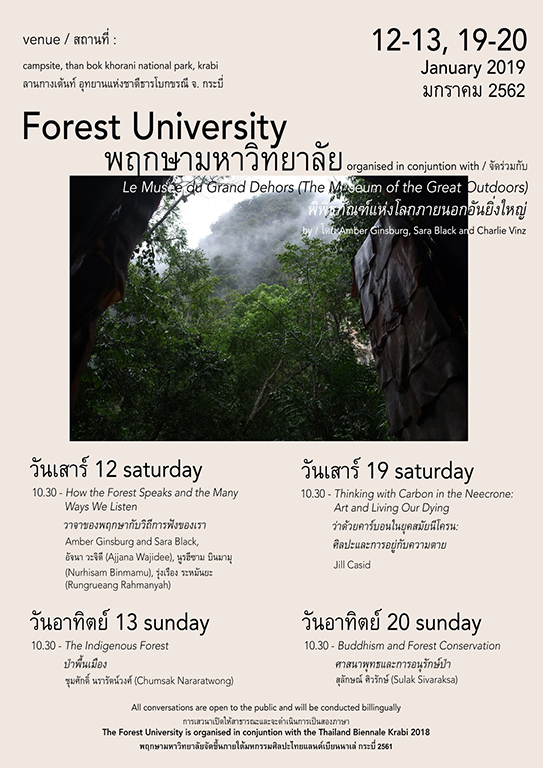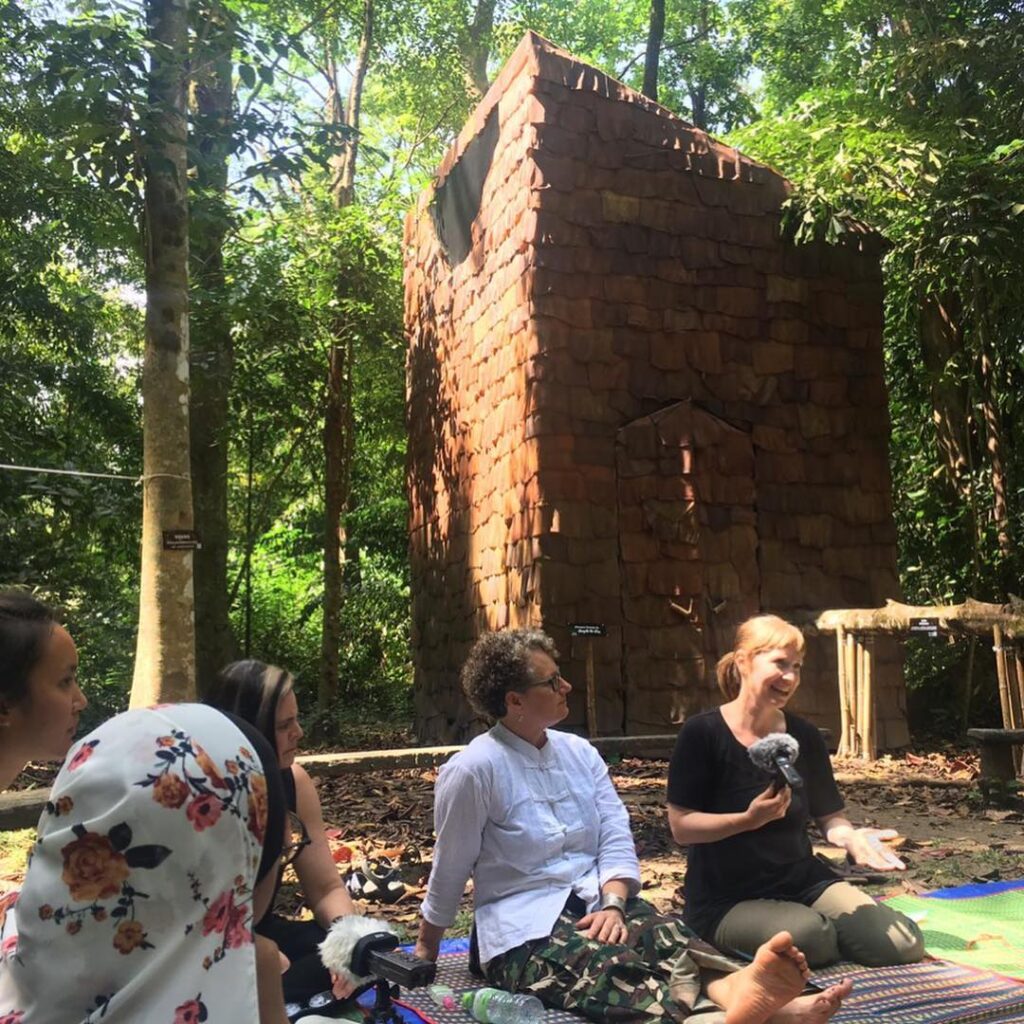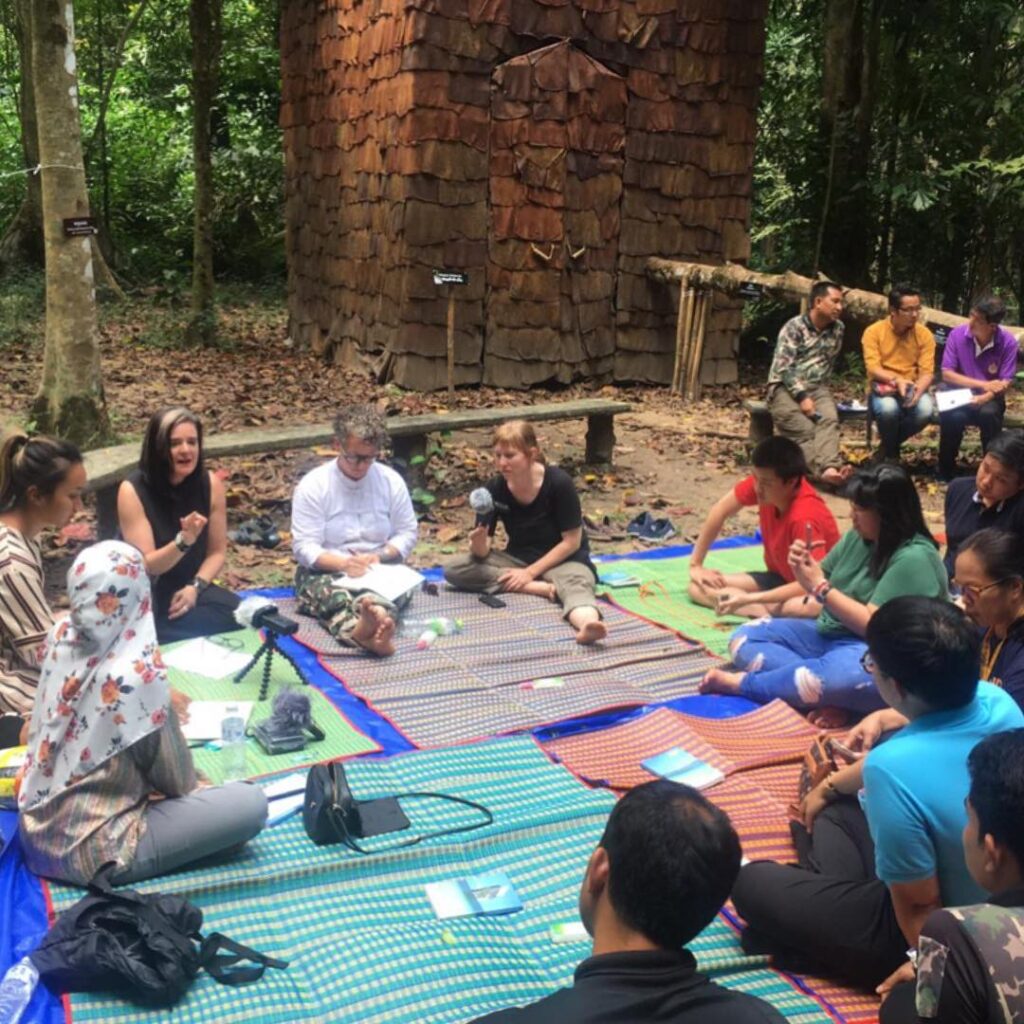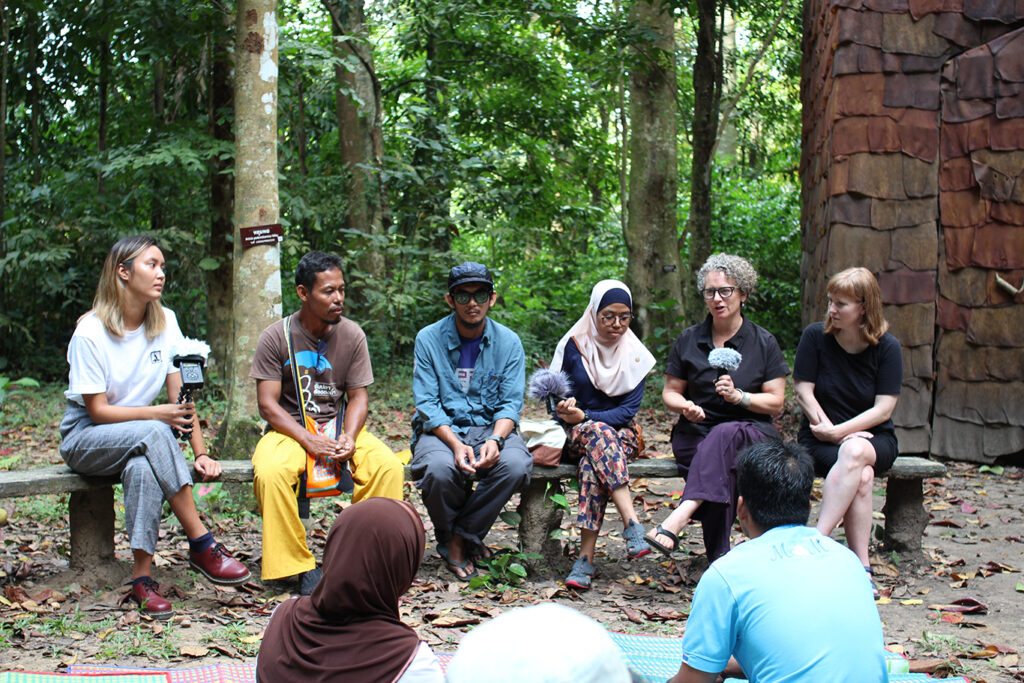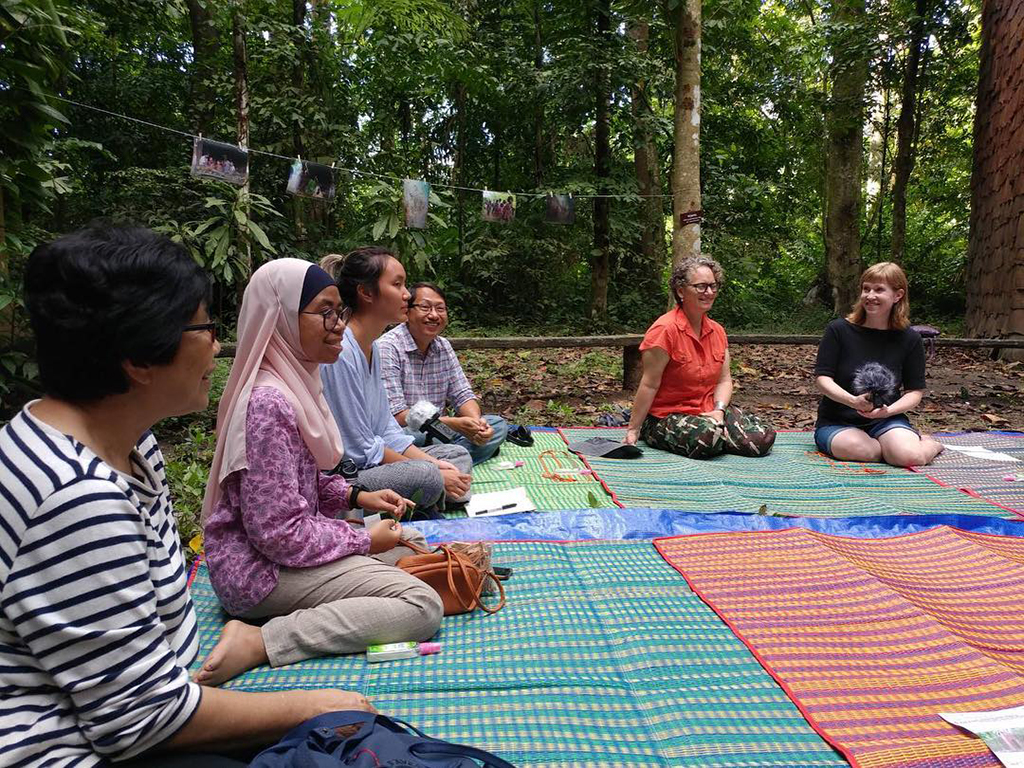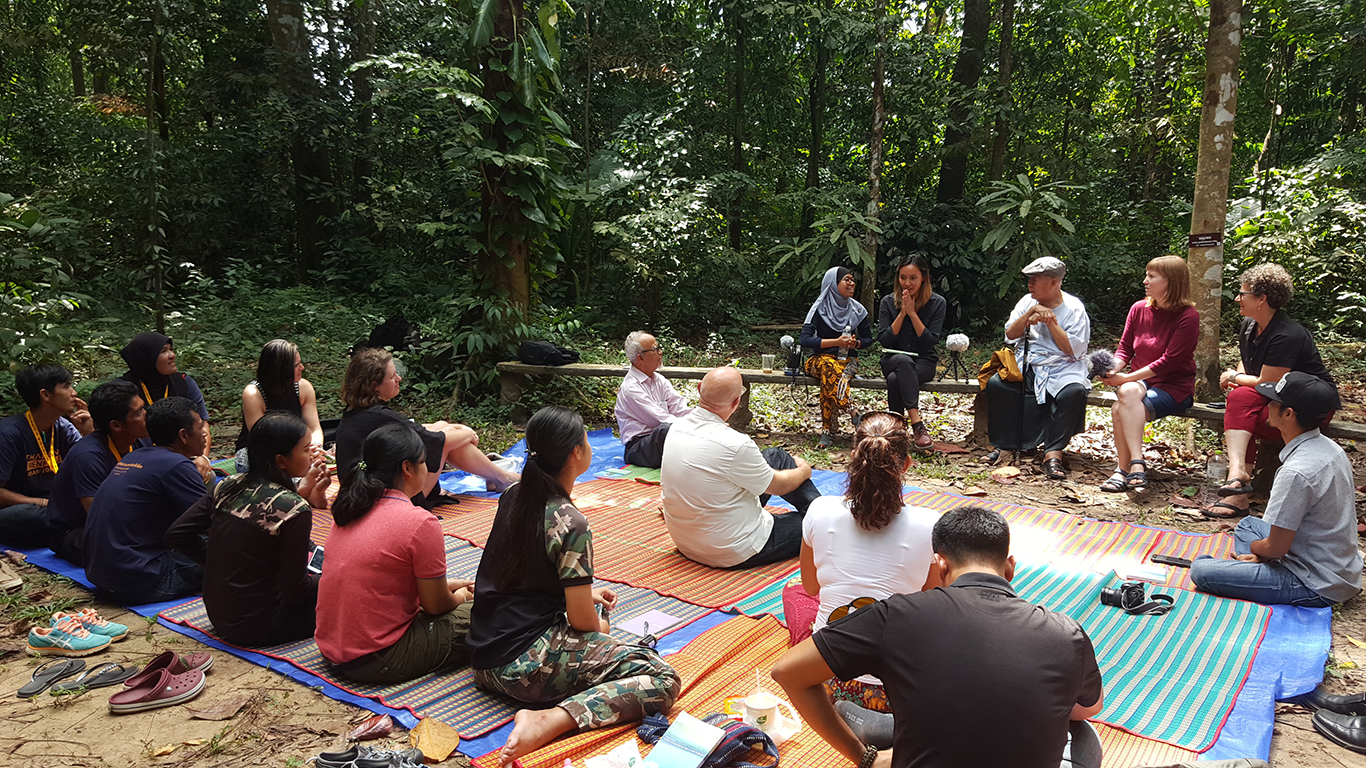Forest University, 2019 – ongoing
Than Bok Khorani National Park, Krabi, Thailand, 2019 (in post-production)
Shawnee National Forest, Illinois, 2019 (in post-production)
Jean Lafitte National Historical Park and Preserve, Louisiana, 2019-2020 (in production)
An ongoing interview series and audio archive created at various forest sites, the Forest University project is one that addresses the complexity of the land acknowledgement in human and often colonially affected forests, aims to draw urgent attention to the way forests impact the lives of communities who live near or within them, and recognizes the forest as a teacher. Forests are complex systems with a deep history of human intervention and interspecies dynamics. They are spaces that connect us to ideas of trial, transformation and growth.
Forest University brings together forest inhabitants, art historians, forest and environmental activists, indigenous leaders, religious leaders, paleontologists, foresters, biologists and more for conversations sited in the forest. The interviews are both live, but will be released as a series of audio interviews presented in podcast form. The first four episodes (in post-production) were recorded in Than Bok Korani National Park in Krabi, Thailand, and were hosted next to a large sculpture created by Amber Ginsburg, Charlie Vinz and I for the Thailand Biennial in January 2019. The installation included a structure clad in raw rubber and an entire rubber tree, harvested from local rubber plantations quite near the park. As we negotiated the project with the Thai Government, who managed the park and sponsored the exhibition, we were fascinated by what was designated as a tree and what was not. Trees are forbidden from being cut down in Thailand for non-industrial use, but we were permitted to fell a rubber tree and use it in our work, because, curiously, rubber trees are not considered trees. They are agricultural commodity plants. This mechanism of classification as a construct of the human imagination piqued our curiosity. From here we sought the perspective of Thai people in relationship to the forest. What are the range of lessons human neighbors or inhabitants learn from the forest?
In the first four episodes we interviewed: Thai Muslim forest activists Ajjana (Noona) Wajidee, Nurhisam (Sum Nara Nara) Binmamu, and Rungrueang (Bang Nee) Rahmanya with an event and episode title, How the Forest Speaks and the Many Ways We Listen; American art historian and author of Sewing Empire, Jill Casid with an event and episode title, Thinking with Carbon in the Neeocrone: Art and Living our Dying; Thai journalist and activist Chumsak Nararatwong with an event and episode title, The Indigenous Forest: the Orang Asli of the Hala-Bala Forest; and the esteemed Buddhist scholar, activist and progenitor of the concept of “socially engaged buddhism,” Sulak Sivaraska, with an event and episode title Buddhism and Forest Conservation. These four episodes will be released to the public in March 2020.
